Atmen automates certification workflows across hydrogen, e-fuels, and biomethane, from real-time supply chain data to auditable product claims. Bring clarity and control to your compliance journey — all in one place.
It’s a challenge for business developers selling a green premium, engineers calibrating supply chains, procurement teams optimising the intake of the right feedstocks, and supply chain managers integrating regulatory constraints into their daily workflows.
With 18 industrial supply chains already onboarded, Atmen combines frontier technology with deep regulatory expertise to help you stay ahead in a fast-moving compliance landscape.














Atmen's pre-operations modelling is the fastest way to de-risk supply chains and secure certification-readiness before go-live. How much of your future supply output will be certifiable as green?
Input your plant engineering, supply chain data, and energy inputs to simulate energy flows and carbon intensity. This helps confirm eligibility fo EU-accredited certification schemes, speeds up certification readiness, and builds trust with offtakers and investors. Now compatible with EU RFNBO.


Think of Atmen as the technology layer on top of operational supply chains, enabling continuous compliance and streamlining the official sustainability certification workflows. At scale and across borders.

You can manage your entire audit preparation directly in Atmen's platform. This feature helps you collect documents, reconcile data, and generate audit-ready reports, with checklists and reminders based on your certification scheme. Invite external auditors, share granular data, and automatically generate key evidence like mass balances and sustainability proofs.
Saved yearly by our customers
Primary data coverage of key ingredients within first 3 months


















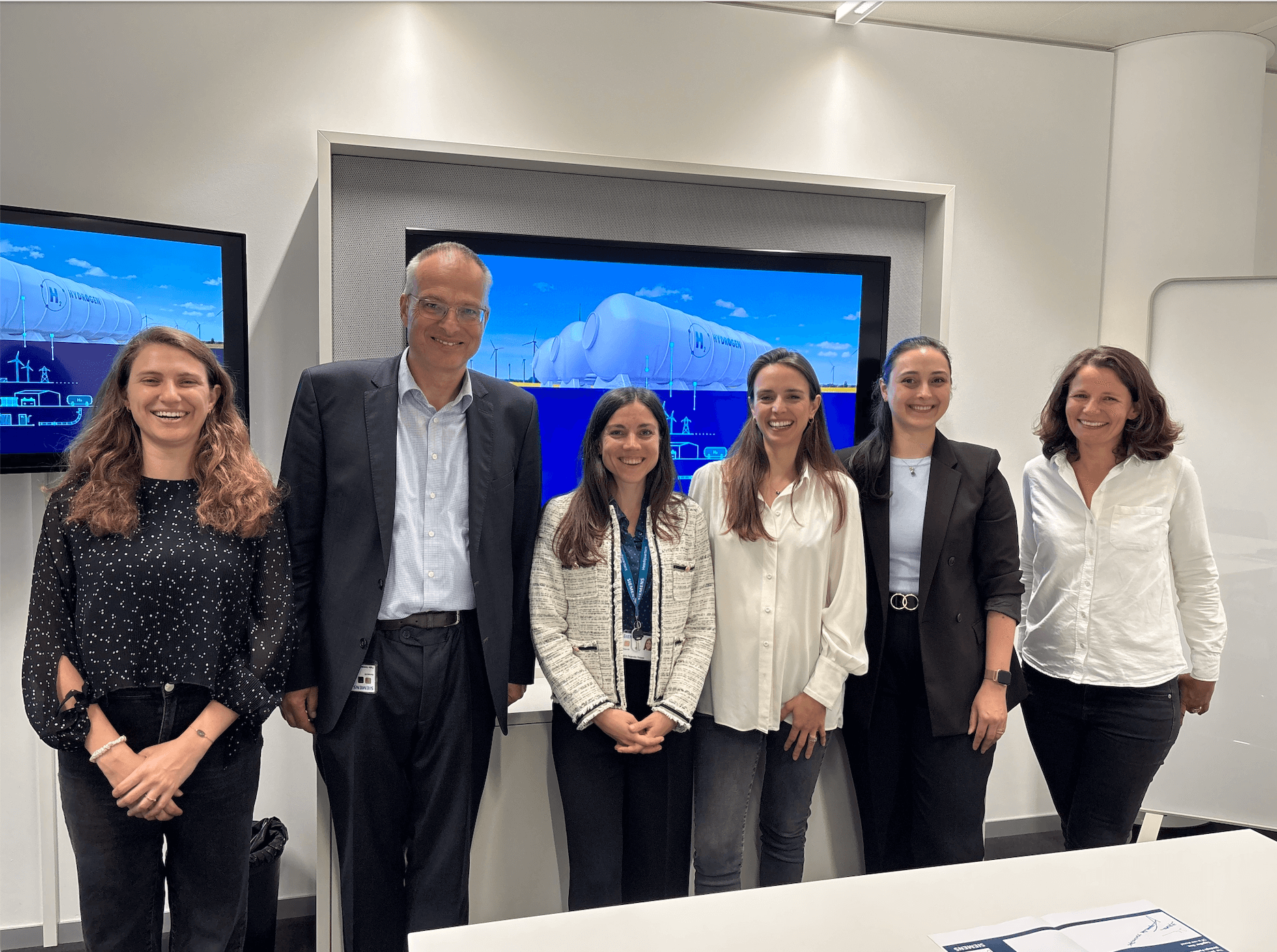
Munich – 30. October, 2025 – Siemens and Atmen have signed a Global Strategic Partnership Agreement (GSPA) to jointly promote interoperable digital and compliance solutions for green hydrogen and Power-to-X (PtX) projects.
The partnership combines Siemens’ digital capabilities with Atmen’s regulatory automation platform to jointly promote solutions that support compliant power-to-X supply chain development. By aligning digital plant design with certification requirements from the start, the two companies aim to help developers accelerate readiness for evolving schemes and standards, such as those included in the EU Renewable Energy Directive.
“Atmen’s modules could now integrate seamlessly with Siemens’ digital twin and control tower technologies, turning scattered data into a continuous flow,” said Flore de Durfort, CEO of Atmen.
“Siemens’ tools assist companies in building and operating smart supply chains and testing scenarios. Paired with Atmen’s certification platform, engineers and procurement teams get the info needed to stay compliant, resilient, and ensure products meet standards.”
The agreement establishes a structured collaboration between the two companies. Siemens and Atmen seek to coordinate on a shared pipeline of opportunities, align early in tenders and strategic projects, and participate jointly in selected trade fairs and customer engagements.

A bi-annual steering committee, led by senior managers from both companies, aims to review market trends and collaboration opportunities. A dedicated working group then facilitates coordination on ongoing business development and portfolio alignment.
“Our partnership aspires for innovation, credibility, traceability and sustainability from design through operation,” said Peter Ammann, Head of Center of Competence for Siemens’ Hydrogen business.
“Siemens’ and Atmen’s strengths combined pave the way for green hydrogen’s end-to-end value chain becoming a cornerstone of a decarbonized global energy system.”
The partnership is non-exclusive and does not involve technology integration at this stage. Instead, both companies will continue to develop their respective platforms independently, while enabling interoperability in customer projects of mutual interest and involvement.
Together, Siemens and Atmen aim to significantly reduce project risk, lower the levelized cost of hydrogen (LCOH), and enhance trust in the traceability and sustainability of hydrogen and PtX projects across Europe and beyond.
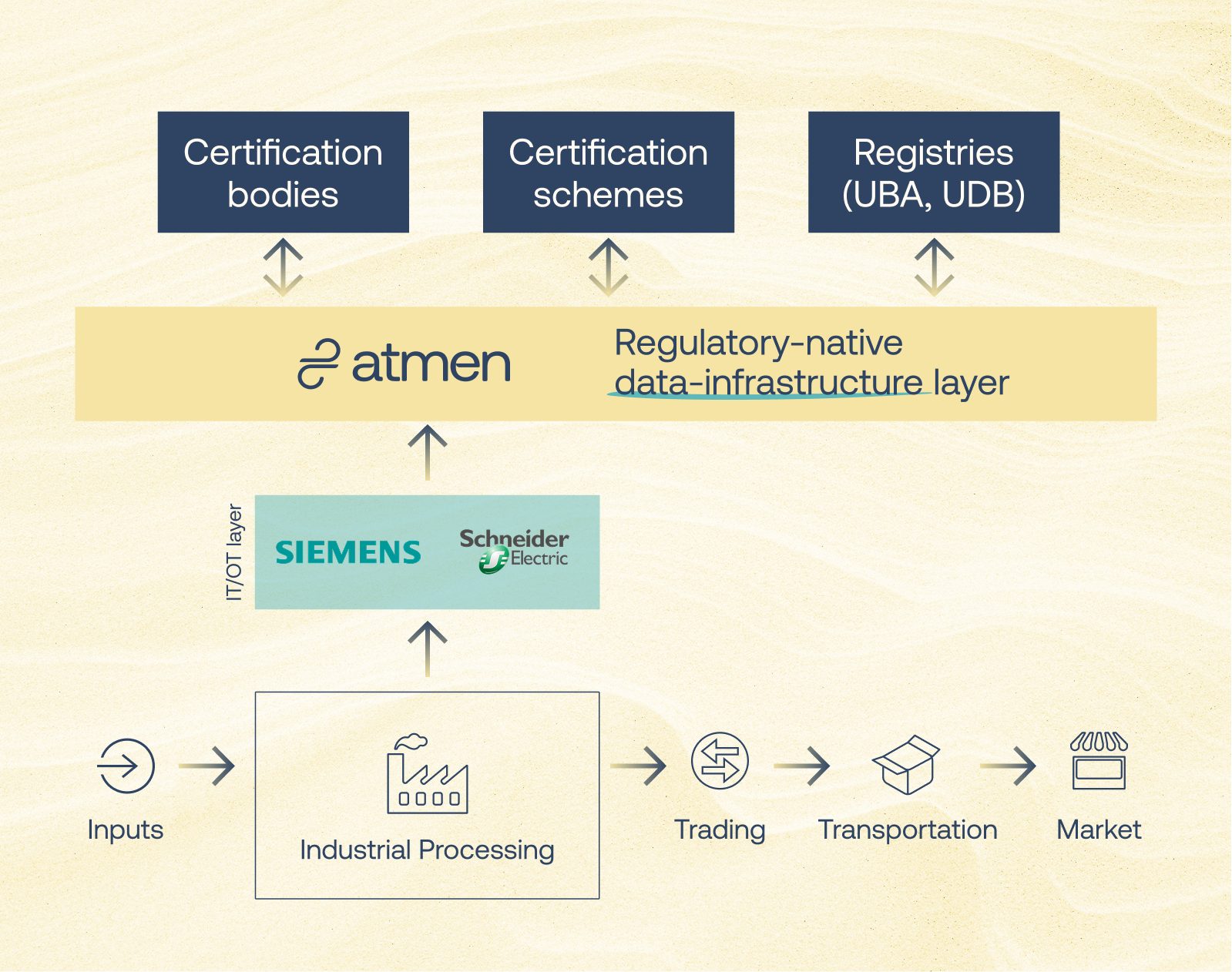
About Siemens
Siemens AG (Berlin and Munich) is a leading technology company focused on industry, infrastructure, mobility, and healthcare. The company’s purpose is to create technology to transform the everyday, for everyone. By combining the real and the digital worlds, Siemens empowers customers to accelerate their digital and sustainability transformations, making factories more efficient, cities more livable, and transportation more sustainable. A leader in industrial AI, Siemens leverages its deep domain know-how to apply AI – including generative AI – to real-world applications, making AI accessible and impactful for customers across diverse industries. Siemens also owns a majority stake in the publicly listed company Siemens Healthineers, a leading global medical technology provider pioneering breakthroughs in healthcare. For everyone. Everywhere. Sustainably. In fiscal 2024, which ended on September 30, 2024, the Siemens Group generated revenue of €75.9 billion and net income of €9.0 billion. As of September 30, 2024, the company employed around 312,000 people worldwide on the basis of continuing operations. Further information is available on the Internet at www.siemens.com.
About Atmen
Atmen (atmen.co) is a regulatory technology company providing the data infrastructure that powers the trusted certification of industrial products. Atmen focuses on automating certification and enabling large-scale, verifiable supply chain transparency across energy-intensive industries.
Founded in January 2023 by energy and regulation experts Flore de Durfort, Quentin Cangelosi, and Erika Degoute, Atmen has raised €6.3M to date to build technology that certifies industrial goods, starting with clean fuels.
Headquartered in Munich, the company's platform is deployed across industrial sites in 9 countries, automating certification workflows and enabling verifiable proof of product attributes throughout the supply chain.

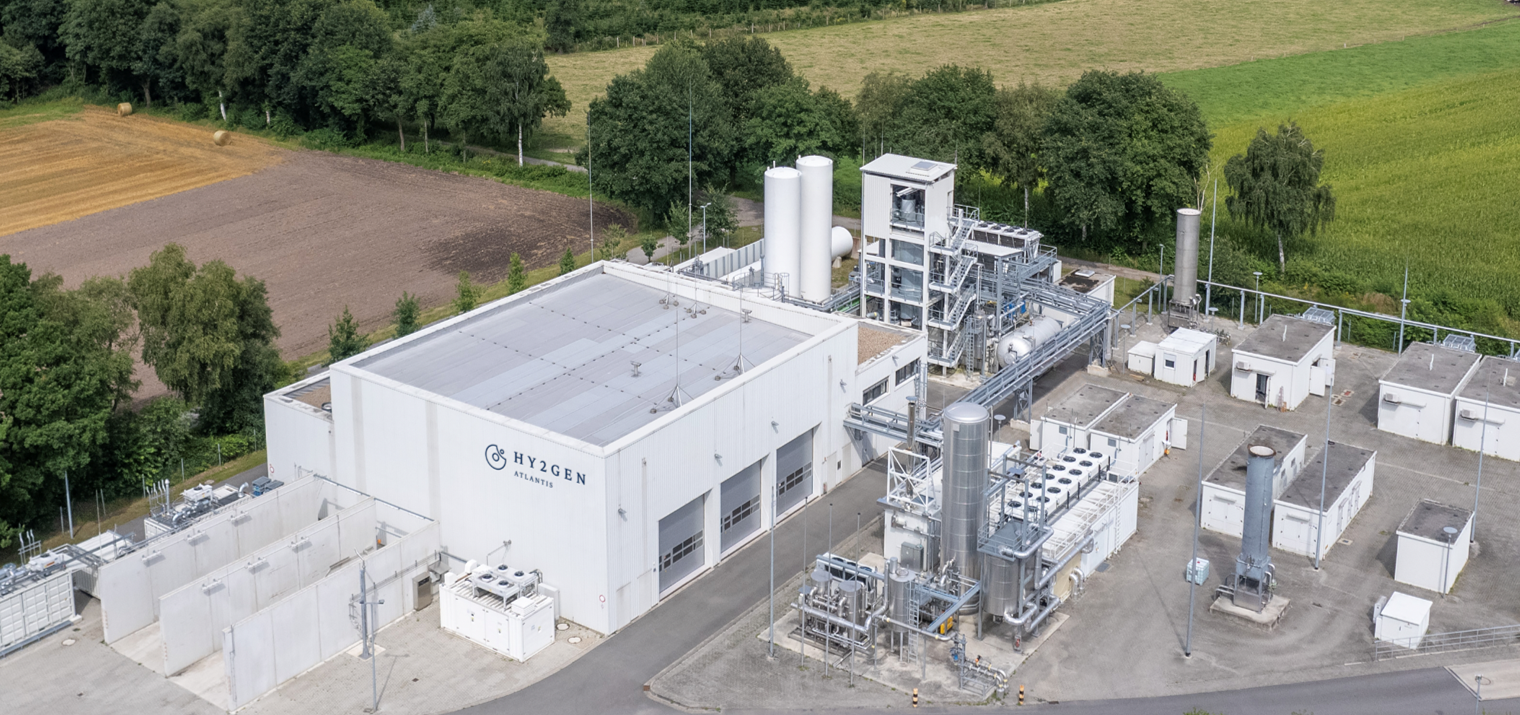
Germany’s first RFNBO-certified e-methane facility is now live in Werlte. The Atlantis site, operated by Hy2gen, has become one of the very first industrial plants worldwide to achieve certification under the CertifHy scheme.
Behind the scenes, Atmen’s compliance automation platform provided the digital backbone that made certification possible. Together, Hy2gen, CertifHy, and Atmen proved that renewable molecules can be tracked and certified at an industrial scale under Europe’s strict rules.
In May 2025, Hy2gen’s Atlantis facility in Werlte became the first site in Germany to be certified under the EU’s RFNBO scheme for e-methane.
“I’m proud we are now officially among the first sites worldwide to produce hydrogen and methane molecules with RFNBO certification here in Werlte,” said Matthias Lisson, Country Director at Hy2gen.
“In basic terms, the RFNBO certification proves that every molecule of renewable hydrogen or renewable methane produced here in Werlte can be precisely tracked for its carbon footprint emitted throughout the entire lifecycle.”
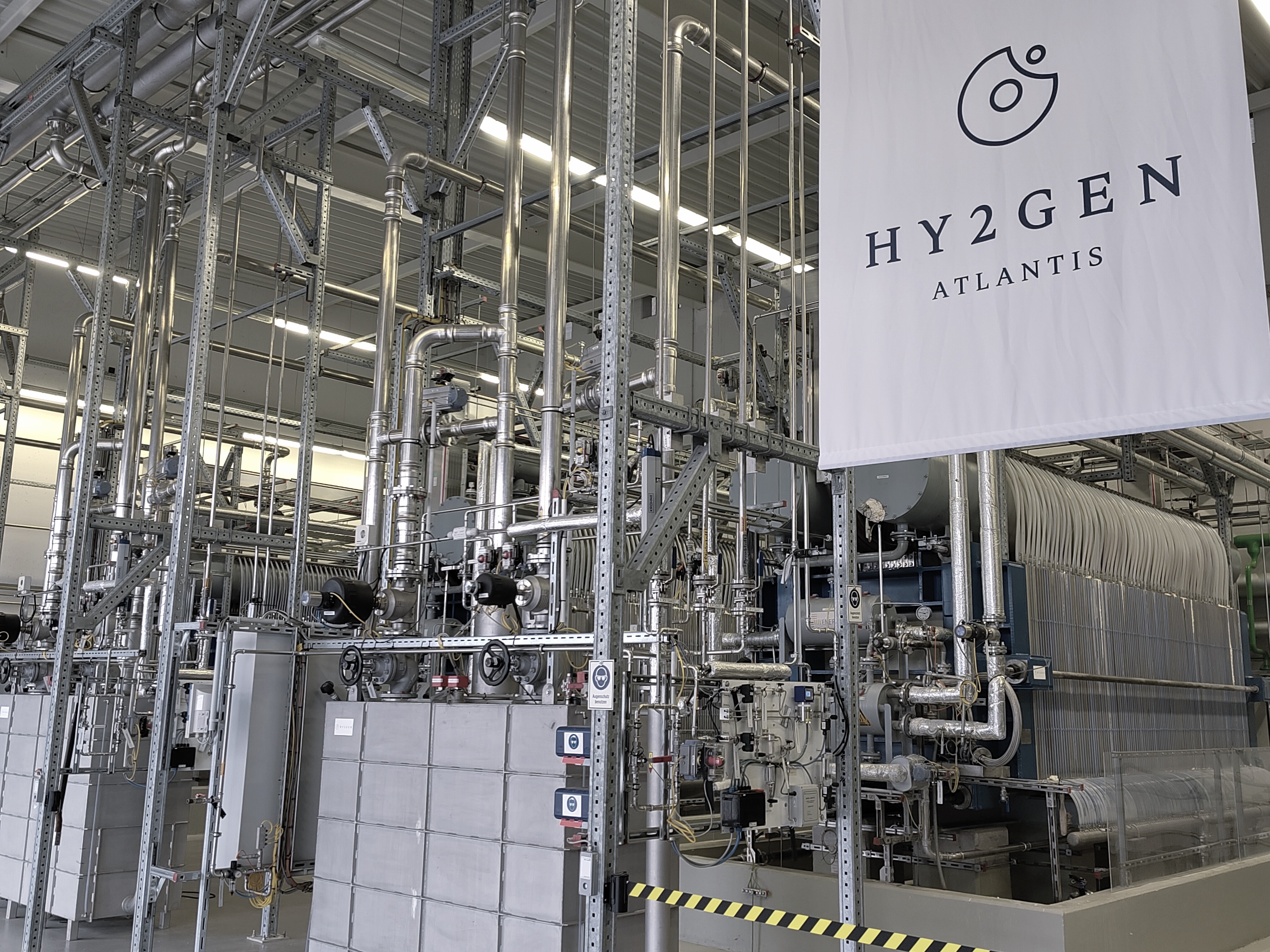
RFNBO certification is a stress test for data management and carbon accounting in alignment with operational supply chains. Success depends on the entire ecosystem: producers, certifiers, auditors, and the right technology.
“I am really proud to share this milestone for CertifHy, for Atmen, for Hy2gen, and also for the entire renewable hydrogen and e-fuels industry,” said Matthieu Boisson, Managing Director at CertifHy.
“The Hy2gen Werlte site is one of the very first industrial facilities worldwide to be certified under the CertifHy EU RFNBO scheme.”
Atmen’s Automate platform turned regulatory complexity into operational reality. It transformed more than 70,000 data points into audit-ready documentation, automated the issuance of Proof of Sustainability, and delivered a secure, up-to-date GHG calculator. By digitizing the process, Atmen helped cut preparation time by up to two months.
“Atmen’s role is to connect the dots in the space of certification,” said Flore de Durfort, Co-Founder and CEO of Atmen.
“We do two things. First, we bring clarity: we bridge the gaps between schemes, the rules of the game, and the reality of a very concrete supply chain. Second, we accelerate: we provide pre-built automated workflows for data ingestion, traceability, and verification.”
For Hy2gen, the impact was clear. “Without your tool, we wouldn’t have survived the audit,” said Christian Zuber. “Without Atmen, it would be double the work. We saved two months of full-time effort thanks to Automate.”
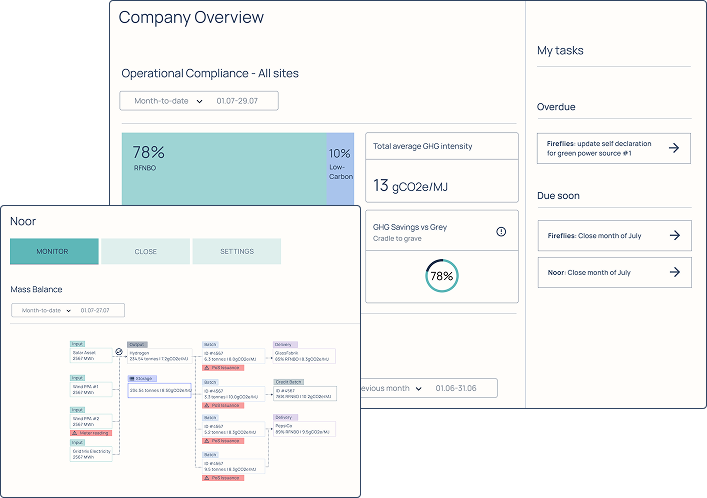
The Werlte milestone proves that RFNBO certification at an industrial scale is possible when producers, certifiers, and technology providers work together.
“Certification of a product is always teamwork,” said Lisson.
“In this case, it was crucial to have Atmen provide the database and the software, reducing the time spent on all the documentation work within the certification scheme. Together, we succeeded as a team, with CertifHy providing the scheme.”
The lesson is clear: compliance can scale when built into operations, not bolted on. Standardization accelerates trust. Digital tooling reduces friction across the value chain.
“This is what building energy resilience looks like,” Lisson concluded. By achieving Germany’s first RFNBO e-methane certification, Hy2gen has helped move the sector from ambition to execution. With the right tools and partners, more producers are now in a position to follow.